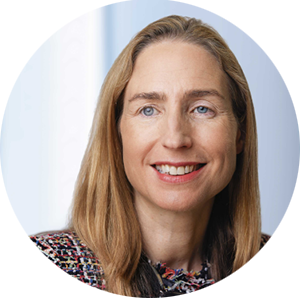
It's all about people. Equity
Equity is the notion of having fair and impartial opportunities within Zurich.
How we understand equity
At Zurich, we are dedicated to ensuring that everyone has access to opportunities that enable them to reach their full potential. By fostering an environment of equal opportunities, we aim to make Zurich one of the best places to work and to achieve our business outcomes and goals.
Equal Pay for Equivalent Work
At Zurich, we aspire to be one of the most responsible and impactful businesses in the world, and one important action toward achieving this ambition is to strive for Equal Pay for Equivalent Work. We strongly believe that gender should not influence the money you earn.
We are committed to equal opportunity and pay equity in all the markets in which we operate and have implemented measures to track progress. We conduct equal pay analysis on an annual basis in the majority of our businesses that have 100 or more employees to ensure that gender is not a factor when it comes to remuneration. If we find any issues or abnormalities, we take corrective actions and will continue to act on any deviation. This analysis forms part of our yearly remuneration review cycle.
Equal Pay for Equivalent Work, that is, analyzing whether men and women are paid equally for same or similar roles, is a position our stakeholders increasingly expect from us. It helps to create a trusted, diverse and dynamic work environment. More importantly, however, it’s simply the right thing to do.
Gender pay gap
Bridging the gender pay gap is a priority for us. Gender pay gap is the difference of the average male salary and average female salary in an organization regardless of role, responsibility, seniority or nature of work. Zurich monitors the gender pay gap, and local entities may publish results externally, in accordance to applicable laws.
The Equal Pay for Equivalent Work analysis and the qualitative audit is helping Zurich to uncover potential barriers that may hinder equal opportunities for our people to advance. That process has successfully generated engaged conversations across our organization, and Zurich’s management is fully dedicated to promoting pay balance across genders or any other demographic (which may apply locally) at Zurich.
Equal pay in practice
Pay gap reporting

Annually, and since 2017, Zurich UK has published its Gender Pay Gap (GPG), i.e. the difference between male and female average rates of pay, including bonus levels. The size of the gap demonstrates the extent that women are under-represented at senior levels. Since 2020, the UK business unit also made the decision to report on its ethnicity, LGBTQ+ and disability gaps (they follow the same calculations as the GPG) both internally and externally. This is in addition to our annual regression analysis to ensure equal pay for equivalent work. Through this process, any pay disparities that cannot be explained by a legitimate reason (e.g. performance in role, experience, etc.) are identified and addressed.
Our efforts – At a glance
We have implemented “Equal Pay for Equivalent Work” analysis or similar, meaning that pay is reviewed regularly to ensure that gender is not a factor when it comes to salary decisions.
Our FlexWork@Zurich program enables flexible working arrangements for our people so that they can work in ways that better suit their lifestyles and allow them to use time more efficiently. This has been especially important in times of COVID-19.
Zurich became the first company in the UK to advertise its vacancies with the option of part-time, full-time, job share or flexible working. As a result, nearly 25% more women applied for roles.
Zurich wanted to take the opportunity to go further and embed additional measures that promote equality, such as recognizing carers’ leave or going beyond statutory requirements for parental leave. In 2019, Zurich introduced the harmonization of the principles around parental leave policies globally, specifically that paid leave should in principle be available to anyone who becomes a new parent, regardless of gender.
At Zurich, we recognize that every family is unique and balancing responsibilities is important to all of us.
We hope that making these changes to our recruitment advertisements will have a direct impact on reducing our gender pay gap, as we attract more women into our workforce.
But it’s not solely about women. We’ve seen as much interest in flexible working from male employees as we have from females.










